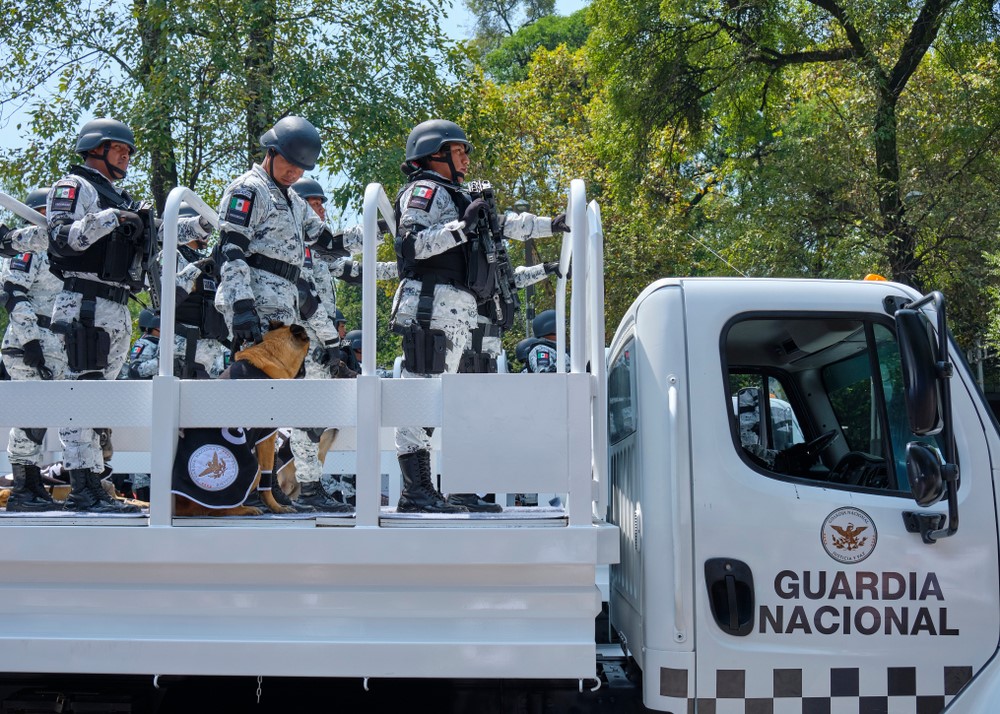By: Fernando Sánchez Tarasco / María Fernanda Castro González
The "National Guard" was created at the initiative of the President in 2019 -through the constitutional reform published in the Official Gazette of the Federation ("DOF") on March 26, 2019-, as a civil institution in charge of carrying out public security tasks, to replace the then called “Federal Police”.
However, on September 9, 2022, the Plenary of the Senate approved the bill that amends/reforms 4 laws regarding the National Guard, with the purpose of: (i) transferring the administrative and operational control of the National Guard to SEDENA -which is the Mexican Ministry of Defense-; (ii) allowing active military personnel to work in such institution without leaving their military positions; (iii) requiring that high-level commanders of the National Guard come from military positions; (iv) allowing crimes attributed to National Guard personnel to be judged before military and not civilian courts; as well as (v) instituting military training for all National Guard personnel.
The draft decree amending, adding, and derogating several provisions of the Organic Law of the Federal Public Administration, the National Guard Law, the Organic Law of the Mexican Army and Air Force, and the Law of Promotions and Rewards of the Mexican Army and Air Force, was sent to the Federal Executive and thereafter published in the Federal Official Gazette on September 9, 2022 -effective as of Monday, September 12, 2022-.
In addition, on November 18, 2022, the Federal Executive published in the Federal Official Gazette the Decree amending the Fifth Transitory Article of the Federal Constitution -an initiative presented by the political party “PRI”-, increasing from 5 to 9 years -that is, until 2028- the period in which the President may use the military forces in public security tasks, in the following literal terms:
"Fifth. During the nine years following the entry into force of this Decree, while the National Guard develops its structure, capabilities and territorial implantation, the President may use the permanent military forces in public security tasks. Pursuant to the terms set forth by the Mexican Supreme Court of Justice, said participation shall be: (…).”
Thus, based on said decree, the President may use the permanent military forces in public security tasks until 2028, with the only obligation to submit to the Congress of the Union a biannual report.
For the review of such reports, the Decree determines the need to create a Bicameral Commission to evaluate the participation of the military forces in public security tasks within 60 days of its entry into force; however, even though the deadline for its creation is January 19, 2023, the legislators concluded the first ordinary period of sessions without creating such Commission -especially when the first report of the President should be rendered next May 2023-.
Such actions, in addition to the public position of the Federal Government, evidence the progressive militarization of the country. Therefore, several international organizations have expressed their concern, such as "Amnesty International" which on September 9, 2022, published a statement rejecting the decision of the senators to legalize the militarization of the Country, and pointed out that this “…represents an atrocious act that puts at risk the guarantee of human rights in Mexico…”.
On the other hand, the UN Committee against Forced Disappearances urged the Mexican State to abandon the militarized approach to public security as it had been insufficient and inadequate to protect human rights, and recommended strengthening the civil forces by establishing a withdrawal plan. of the military forces of public security tasks. However, given the omission of the Mexican State to comply with these recommendations, it was that through the statement of September 9, 2022, the UN interim high commissioner expressed her concern about the decision of the Mexican Congress to cede control of the National Guard to SEDENA, and indicated that this "... is a setback for public security based on human rights..." .
Even in a press release issued on the same date, the Inter-American Commission on Human Rights (“IACHR”) expressed its concern regarding the legislative modifications that submit the National Guard to the operational and administrative control of the SEDENA, and urged the Mexican Government to reconsider such modifications in compliance with its international human rights commitments vis-a-vis the militarization of public security, and pointed out that any policy on public security must have an institution independent from the military forces.
The Commission highlighted that since the in loco visit to Mexico in 2015 by the IACHR, it warned that demilitarization is a pending task to be fulfilled, and in this sense reiterated to the Mexican Government the importance of continuing in the demilitarization process with effective and respectful of human rights public security policies, therefore, relevant amendments/reforms would also put at risk Mexico’s compliance with its international obligations with respect to Inter-American standards which, as a general rule, provide that internal public order and public security are primarily reserved to civilian police forces.
Thus, the decision to militarize the country's public security services is worrying in the context of the number of human rights violations in which elements of the military have played a leading role, and which have even been the subject of study and resolution by the Inter-American Court of Human Rights (“IACoHR”), as in the case “Radilla Pacheco Vs. Mexico” 1 on the forced disappearance of a campesino composer of corridos at the hands of military forces in 1974, whose location is still unknown, as well as the case “Alvarado Espinoza vs. Mexico” 2 , on the disappearance of 3 members of the Alvarado family by members of the Mexican Army, and the cases “Fernández Ortega vs. Mexico” 3 and “Rosendo Cantú vs México” 4 , in which military agents raped indigenous women.
These precedents show that the consequences of involving the military forces in the tasks of civilian authorities in matters of public security are disastrous in terms of violence.
The IACoHR itself has held that the use of military force for the control of common crime or internal violence should be limited to the maximum, as in the case of "Cabrera García and Montiel Flores vs. Mexico."5, in which it indicated that the possibility of granting the military forces functions aimed at restricting the personal liberty of civilians, in addition to attending the requirements of strict proportionality, must also respond to strict criteria of exceptionality and due diligence in safeguarding conventional guarantees.
In addition to the national and international concern on the subject, it is certain that the reform in question is even contrary to the provisions of the Constitution itself, since article 21 states that “…the public security institutions shall be civilian, disciplined and professional…”, while Article 129 states that "...in times of peace, no authority may exercise more functions than those that have an exact connection with military discipline..."; therefore, with the reform in question, the intention of depositing the public security tasks in the military forces, contravenes what is referred to in the constitutional text itself.
For this reason, several entities and associations have urged the Mexican Human Rights Commission to file an action of unconstitutionality, however, said Commission has already declared -since communication DGDDH/067/2022 of September 13, 2022-, that it will not file any action regarding the reforms approved by Congress, since it "attends to the emergency and exceptional situation that justifies the reforms, and therefore, will help to guarantee the preservation of the civilian character of the National Guard and will supervise its compliance to human rights."6
Notwithstanding the position of the Mexican Human Rights Commission, the truth is that derived from the reforms regarding the National Guard, several legitimized entities did file various means of constitutionality defense, including 5 actions of unconstitutionality, 3 constitutional controversies and 1 amparo claim, all of which, at the request of the President of the Board of the Chamber of Deputies, will be resolved as a priority matters by the Mexican Supreme Court of Justice -as it was made known through communication No. 451/2022, dated December 9, 2022-.
We will keep you updated.
1 https://www.corteidh.or.cr/CF/jurisprudencia2/ficha_tecnica.cfm?nId_Ficha=360
2 https://www.corteidh.or.cr/docs/casos/articulos/resumen_370_esp.pdf
3 https://www.corteidh.or.cr/CF/jurisprudencia2/ficha_tecnica.cfm?nId_Ficha=338
4 https://www.corteidh.or.cr/cf/jurisprudencia2/ficha_tecnica.cfm?nId_Ficha=339
5 https://www.corteidh.or.cr/CF/jurisprudencia2/ficha_tecnica.cfm?nId_Ficha=343
6 https://www.cndh.org.mx/sites/default/files/documentos/2022-09/PRONUNCIAMIENTO_2022_067.pdf









